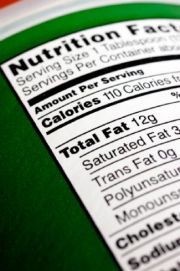
Caribbean Community countries are being urged to establish regional standards for “clear, consistent, food labeling” and to limit, if not ban, the marketing of fast food and sugary drinks to children.
The recommendations are contained in an 80-page report released at the Second International Conference on Non-Communicable Diseases of Children and Adolescents, a two-day event hosted by Trinidad and Tobago.
The report, prepared by the Health Caribbean Coalition, notes that while countries in the region have played a significant role in responding to the impact of non-communicable diseases, or NCDs, among young people, “there are no national policies against advertising of unhealthy foods to children.”
The study also points out that no CARICOM country has national policies or major initiatives aimed at reducing salt intake. Cutting down on salt is a key tool for reducing high blood pressure, which is a major problem among Caribbean people and a major cause of heart disease.
The report, “Responses to NCDs in the Caribbean Community,” highlights both success stories and the considerable challenges facing the region, co-author Nigel Unwin said.
“An example of one of the big gaps that currently exist is that there is no – within any of the countries that we looked at – policy around the marketing of … ‘fast foods’ and sugar-sweetened drinks to children,” the University of the West Indies professor told reporters. Restrictions on marketing those products to children are “now recognized world over as a very important step to be taken to decrease childhood obesity,” he said.









